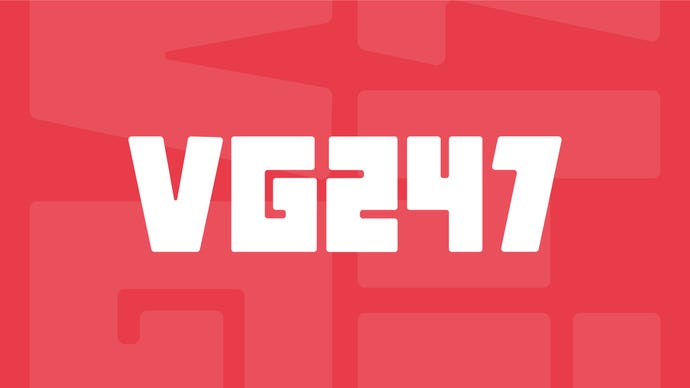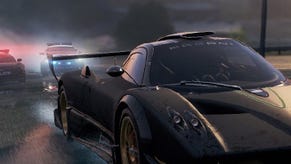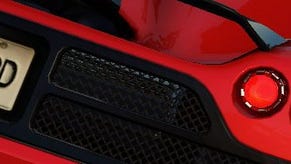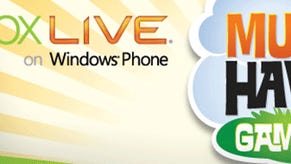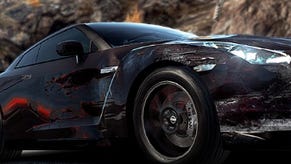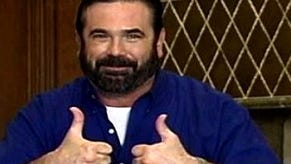Interview - Need for Speed: Hot Pursuit's Matt Webster
We got a chance this week to see Criterion's Need for Speed: Hot Pursuit in London this week, and were lucky enough to grab some face-time with senior producer, Matt Webster.
Matt talked about his "healthy paranoia" as regards the competition, why story isn't "necessary" to the game, what Criterion's working on next and more.
Get the full thing after the break, and read our play impressions from the latest build here.
There's also some new screens below. A new trailer is incoming as well, so keep them peeled.
[Interview by Joe Anderson]
VG247: What have you learned from Burnout Paradise that you have brought to Need for Speed: Hot Pursuit?
Matt Webster: We majored in a lot of online features in Burnout, however I think the asynchronous play of Road Rules is something we really picked up on. It was quite a well-hidden feature, but once people found it they used it a lot. That’s kind of what formed the basis for the Autolog feature in Hot Pursuit.
Getting eight players online is not difficult, but there's a whole bunch of other people who can’t get online at the same time as their friends. Therefore, and I don’t really like the word, the asynchronous play is very important in encouraging new people to get online.
We know how to get people online via connected play but by using Autolog we can encourage people to be connected to each other constantly. That’s what Burnout Paradise taught us.
We haven’t seen much of single-player today. Does the game include an actual Campaign?
Matt Webster: There is a full Career full of events. You start off in the early cars and then progress up the ranks as a cop or as a racer.
As a racer, you have Time Trials, Races and Hot Pursuits, whereas as a cop you have Rapid Responses, Hot Pursuits and Interceptors. So yeah, there is a chunk of gameplay for the solo player.
Is there any story involved in the game at all? Past Need for Speed games went down this route.
Matt Webster: No. We didn’t really think it was necessary to include a story. If you’re a cop, the aim is to go up the ranks, while a racer's aim is to get to the highest rank they can.
The Need for Speed franchise is known the world over. Were you ever worried that Criterion's style may not fit it?
Matt Webster: No, I don’t think so. The amazing thing is we’ve been given the most amount of creative freedom, and we've been pretty successful in the racing genre.
I think that this is ours. It was always going to be Criterion’s Need for Speed. You always have the conversations in the office, where you think, “What would we do if we did a Need for Speed game?”
Now we've been given the opportunity to do it, we've taken the things we know and hold dear: players can have a lot of fun really quickly, tight controls, simple game mechanics and a highly-connected experience. That would apply to any game we did, and in this case it’s bringing the action people would expect from Criterion into a Need for Speed game.
How many cars are in the game? You did mention quite a few would be unlocked at the beginning or soon after.
Matt Webster: There are 65-70 unique cars in the game and 26 manufacturers. Some are exclusive to cops while others are exclusive to the racers.
We try to let people drive the cars on the front of the box, for example, so you’ll get hold of Zonda within 25 minutes of gameplay. As you progress up though the cop ranks and the racer levels more cars will become available to you, to suit your skill level and driving skills.
You supported Burnout Paradise with a great deal of free and premium downloadable content. Is this something you are planning for Hot Pursuit?
Matt Webster: We're going to talk about the specifics of what we want to do when the time is appropriate, but what that taught us is that it’s amazing how much you can change a game after you’ve launched it.
The beauty of DLC is you can see how people are playing the game and develop offerings based on what people like to do, rather than guessing what they want. It certainly pointed the way the future is going to go.
As for the specifics, I guess we won’t talk about them. It was a big, long learning experience for us and everything we learned from that we applied to Hot Pursuit.
It seems to me people looked at what you did with Burnout Paradise's DLC and said, “That’s the way to do it.”
Matt Webster: I think things are changing and the industry is changing. We’re game-makers, but we’re also getting to a level where we're thinking about servicing the gaming community.
We used that as an opportunity to understand how to change a game after you’ve finished it, which isn’t an easy challenge. We learned a lot about fans and how they like to get information, giving them news,
collecting telemetry data from the game based on what gamers were playing, and this allowed us release the DLC based on what they wanted and also on what the players where doing.
Are you worried about competition from other games in November, such as Gran Turismo 5?
Matt Webster: It nice to have a healthy paranoia. It’s good for the creative juices.
We aren’t going to be driving thousands of cars around tracks. We are going to have some of the world's greatest cars racing and chasing each other, and you certainly aren’t going to see a Bugatti Veyron cop car slamming into a Koenigsegg CCXR in Gran Turismo.
There are lots of rumours as to what Criterion Game will be doing next. Can you comment on this?
Matt Webster: There are all sorts of rumours. One minute we’re doing a SSX game or Road Rash or something else. We are tiny in comparison to other EA studios, so all we are really concentrating on now is getting Need for Speed: Hot Pursuit finished. We can’t really see anything past that.
